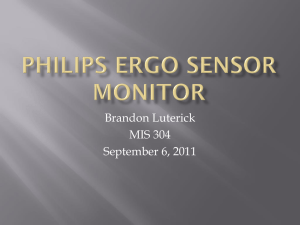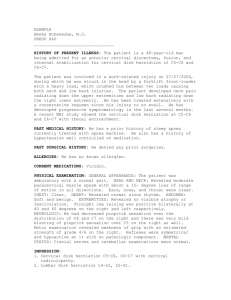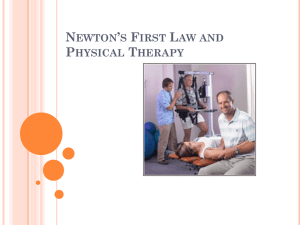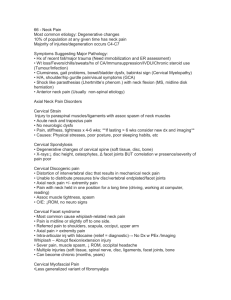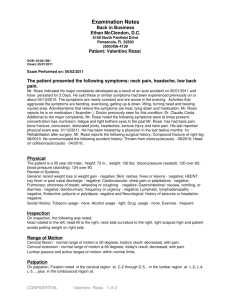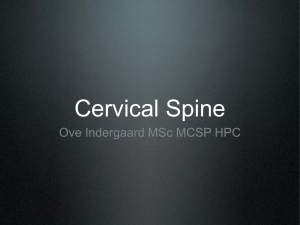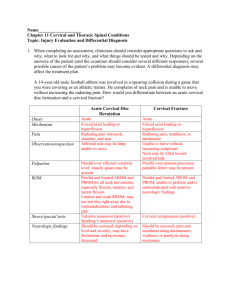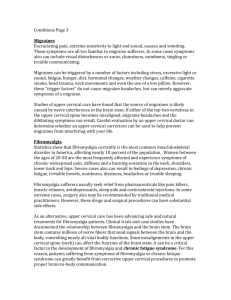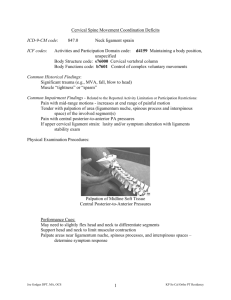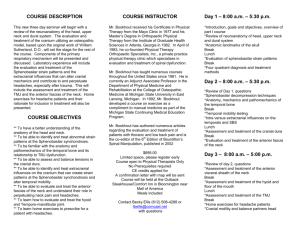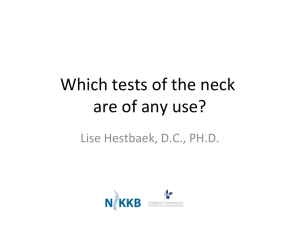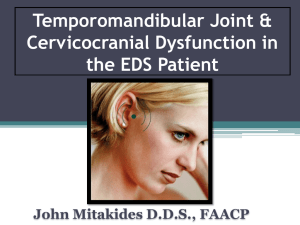Neil Bossenger - The power of upper cervical
advertisement
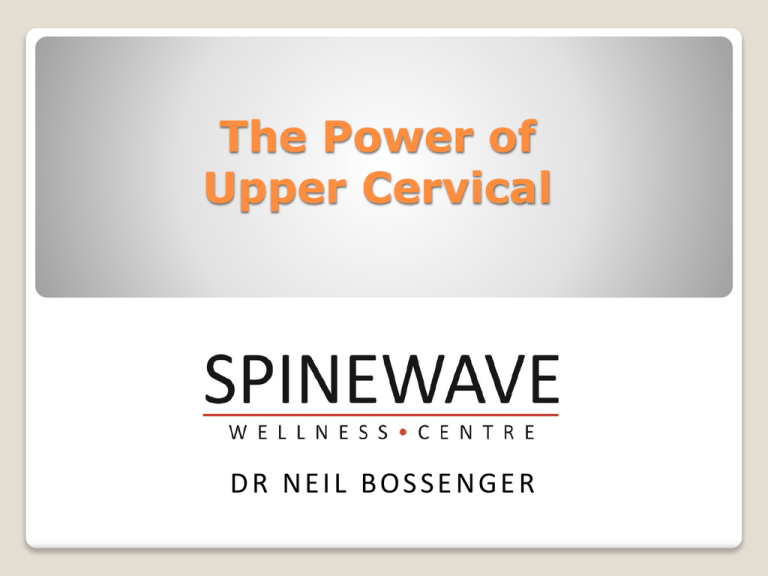
The Power of Upper Cervical DR NEIL BOSSENGER About Spinewave Specialising in: • Functional Neurology. • Upper Cervical Specific. • Mindfulness Based Stress Reduction. Masters in ANS & Pain. The Mouth of God The Power of Upper Cervical Front & Back Upper Cervical Specific Upper Cervical Specific The unique anatomy of atlas and axis. The relationship of skull to atlas. The relationship of atlas to axis. The neurology of brain (and cerebellum). The neurology of brainstem. The neurological associations between. And basically how the whole body works! Atlas & Axis Most complex alignment system. No locking joints. Richest array of neurological input. Gateway between brain and body. Coupled Motions Upper cervical motion is never isolated. In extension, occiput glides forward and posterior elements close toward each other. C2 Dorsal Rami Upper Cervical for Elephants Suboccipital Musculature Position sensors (proprioception). Maintains head alignment. Ties into spinal graviceptive pathways. Maintains posture. Brainstem: Your Fuse Box PMRF/ANS MLF/eyes Spinal muscles Vestibular Cerebellum Neck Effects of C1/2 Misalignment What’s the Big Deal? Structure vs Function Will’s Story Over 8 years lost ability to work. Chronic daily headaches. Wore sunglasses indoors. Chronic fatigue. Loss of strength on RHS. Slow mental processing. After 25 medical practitioners, diagnosed as “psychosomatic”. Effects on Nervous System Small Changes. Big Problems. ↓ frequency of nerve firing to the brain. 2. ↓ oxygenated blood flow to the brain. 3. ↓ or ↑ muscle activity on one side. 1. Effects on Sympathetic Tone • Vascular irritation can cause ↑ activation of the neck & jaw muscles on one side. • This is part of the “Tonic Neck Reflex”. Tonic Neck Reflex The Tonic Neck Reflex helps to maintain postural stability by adjusting extensor muscle tone as head and neck posture changes. Brainstem Autocorrect • Eyes try to maintain horizon & posture. • TNR leads to increase stress response. • Stress response changes the jaw. Disturbed TNR and the TMJ Temporalis muscle: may pull condyle posterior. Lateral pterygoid muscle: may pull disc anterior. Masseter muscles trigger points. TMD! Trigeminal Nucleus Teeth/jaw can alter the upper neck. Input from the face, teeth and TMJ feeds into CN5, processing pain and sensation. TMJ joint capsule highly innervated. Trigeminal Nucleus The neck can change sensation over the head, face, teeth and TMJ. CN5 neurons extend down into the cervical spine. C1-3 neurons feed trigeminal activity. Necks Can Change Jaws Aberrant reflexes create pathological TNR causing dysfunctional head posture. Changes in head posture affect mandibular position. Mandible therefore affects occlusion. TNR & Orofacial Symptoms PTSD (anxiety and depression). Change in facial sensation. Change in sensation over teeth. Left arm pain and reduced ROM. Left hemisphericity. Anisocoria (sluggish left pupil). Temperature dysregulation. Skin changes over left leg. TNR following TBI Upper Cervical Corrections Who Should You See? Dental Problem Head & Orofacial Problem Upper Cervical Problem Chicken or Egg? Bruxism TMJ disorders Trigeminal neuralgia Clicking or deviation Visual disturbance Headaches Vertigo Orofacial pain www.spinewave.co.nz neil@spinewave.co.nz 09 522 0025 DR NEIL BOSSENGER
